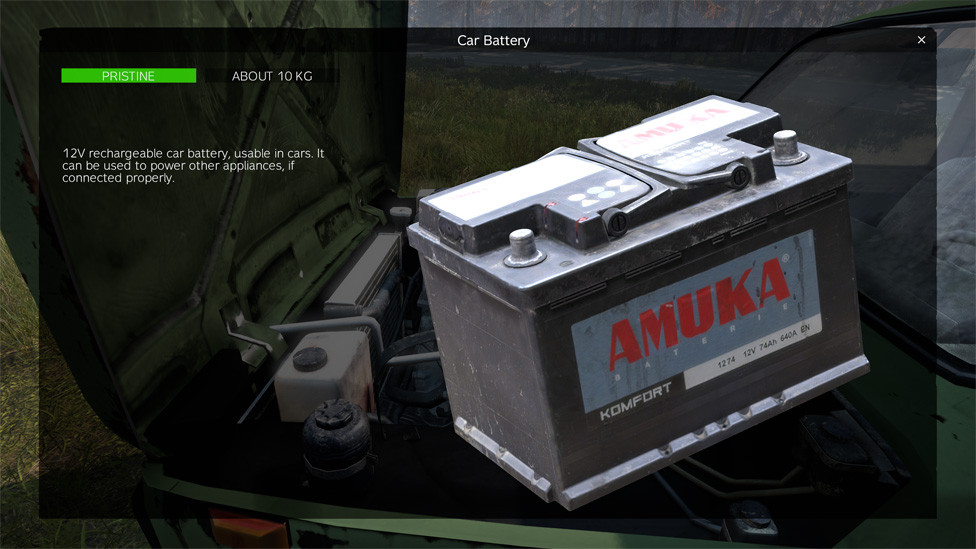How Long Does a Mechanic Have to Fix Your Car?

Navigating auto repairs can be stressful, especially when you’re unsure how long does a mechanic have to fix your car. At CARDIAGTECH.NET, we aim to provide clarity on your rights and expectations regarding auto repair timelines, ensuring you’re informed and empowered. Understanding typical repair durations and legal guidelines can help you manage the repair process more effectively and avoid unnecessary delays. Learn the factors influencing repair time and how to protect yourself with service contracts, ensuring peace of mind.
1. Understanding Reasonable Repair Times
Determining how long does a mechanic have to fix your car involves understanding what constitutes a “reasonable” timeframe. While there isn’t a universal standard, several factors influence the expected duration of auto repairs.
1.1. Factors Influencing Repair Time
Several elements can affect how long it takes a mechanic to repair your vehicle:
- Complexity of the Repair: Simple tasks like oil changes or tire replacements typically take an hour or two. More complex repairs, such as engine or transmission work, can take several days or even weeks.
- Availability of Parts: If the required parts are not readily available, the repair time can increase significantly. Older or less common vehicles often have longer wait times for parts.
- Mechanic’s Workload: The shop’s current workload can also play a role. A busy repair shop may take longer to get to your vehicle.
- Diagnostic Time: Accurate diagnosis is crucial. Complex issues may require extensive diagnostic work, adding to the overall time.
| Factor | Impact on Repair Time |
|---|---|
| Repair Complexity | High |
| Part Availability | High |
| Shop Workload | Medium |
| Diagnostic Complexity | Medium |
1.2. Average Repair Times for Common Issues
To give you a clearer picture of how long a mechanic should have your car, here are some average repair times for common issues:
- Oil Change: 30 minutes to 1 hour
- Brake Replacement: 1 to 3 hours
- Tire Replacement: 1 to 2 hours
- Battery Replacement: 30 minutes to 1 hour
- Engine Repair: 1 day to 2 weeks (depending on the severity)
- Transmission Repair: 2 days to 2 weeks (depending on the severity)
These are estimates, and actual times can vary. Always get a written estimate from the mechanic before authorizing repairs.
 Mechanic inspecting car engine
Mechanic inspecting car engine
2. Legal Regulations and Consumer Rights
Consumer protection laws are in place to ensure fair treatment during auto repairs. These laws vary by state, but they generally cover how long a repair shop can keep your car and what rights you have if the repairs take too long.
2.1. State Laws on Repair Timelines
Many states have regulations that require repair shops to provide a reasonable estimate of repair time and to notify you of any significant delays. For example, California law states that dealerships have a maximum of 30 days to repair a vehicle under warranty.
- California: Dealerships have a 30-day limit for warranty repairs.
- Other States: Most states require repair shops to provide timely updates and seek authorization for additional repairs.
2.2. Your Rights as a Consumer
As a consumer, you have several rights when it comes to auto repairs:
- Written Estimate: You have the right to a written estimate before any work begins. This estimate should include a detailed breakdown of costs and an estimated completion time.
- Authorization for Additional Repairs: Repair shops must obtain your approval before performing any work not included in the original estimate.
- Right to Inspect: You have the right to inspect the repaired vehicle before paying for the services.
- Written Record: You are entitled to a written record of all parts and services provided during the repair process.
2.3. What to Do if Repairs Are Delayed
If a mechanic is taking too long to repair your car, take the following steps:
- Communicate: Contact the repair shop to inquire about the delay. Ask for a specific reason for the delay and a revised estimated completion time.
- Document Everything: Keep records of all communications, estimates, and invoices.
- Escalate: If you’re not satisfied with the explanation, speak to the shop manager or owner.
- Legal Action: If the delay is unreasonable and you believe your rights have been violated, consider consulting with a consumer protection attorney.
3. Dealership vs. Independent Repair Shops
The type of repair shop—dealership or independent—can affect the repair timeline and your rights.
3.1. Dealership Repair Time Limits
Dealerships often have stricter time limits for repairs, especially for vehicles under warranty. As mentioned, California law limits dealerships to 30 days for warranty repairs. This limit is in place because dealerships are expected to have better access to parts and manufacturer support.
3.2. Independent Repair Shop Flexibility
Independent repair shops may have more flexibility regarding repair times, but they are still required to complete repairs in an efficient manner. They must also obtain your consent for additional repairs and keep you informed throughout the process.
3.3. Choosing the Right Option
Consider the following when choosing between a dealership and an independent repair shop:
- Warranty Coverage: If your vehicle is under warranty, taking it to a dealership may be required to maintain coverage.
- Specialized Expertise: Dealerships often have specialized expertise in specific makes and models.
- Cost: Independent shops may offer lower labor rates.
- Convenience: Choose a shop that is conveniently located and has a good reputation.
4. Lemon Laws and Extended Delays
If a vehicle has significant defects that cannot be repaired in a reasonable time, it may be considered a “lemon.” Lemon laws provide legal remedies for consumers with such vehicles.
4.1. Defining a “Lemon” Vehicle
A “lemon” vehicle is one with substantial defects that affect its use, value, or safety and cannot be repaired after a reasonable number of attempts. What constitutes a “reasonable number of attempts” varies by state.
4.2. Steps to Take If You Suspect a Lemon
If you believe your vehicle is a lemon, take the following steps:
- Document Everything: Keep detailed records of all repairs, communications, and issues with the vehicle.
- Notify the Manufacturer: Contact the manufacturer and inform them of the ongoing problems.
- Consult an Attorney: Consult with a lemon law attorney to understand your rights and options.
- File a Claim: Your attorney can help you file a claim under your state’s lemon law.
4.3. Compensation Options
If your vehicle is deemed a lemon, you may be entitled to one of the following:
- Replacement Vehicle: The manufacturer may be required to provide you with a new, comparable vehicle.
- Refund: The manufacturer may be required to refund the purchase price of the vehicle, minus a reasonable allowance for use.
- Cash Settlement: In some cases, the manufacturer may offer a cash settlement.
5. How an Extended Warranty Can Help
An extended warranty, also known as a vehicle service contract, can provide financial protection against unexpected repair costs and may offer additional benefits during extended repair times.
5.1. What Is an Extended Warranty?
An extended warranty is a service contract that covers the cost of certain repairs after the manufacturer’s warranty expires. These plans can provide peace of mind and help you budget for unexpected auto repairs.
5.2. Benefits of Having an Extended Warranty
- Cost Savings: An extended warranty can save you money on expensive repairs.
- Rental Car Assistance: Many extended warranties include rental car reimbursement, which can help you stay mobile while your car is in the shop.
- Roadside Assistance: Some plans offer roadside assistance, including towing and jump-starts.
- Peace of Mind: Knowing that you’re protected against unexpected repair costs can provide peace of mind.
5.3. Choosing the Right Extended Warranty
When choosing an extended warranty, consider the following:
- Coverage: Make sure the plan covers the types of repairs you’re concerned about.
- Deductible: Understand the deductible amount and how it affects your monthly premium.
- Provider Reputation: Choose a reputable provider with a good track record of paying claims.
- Terms and Conditions: Read the fine print to understand the terms and conditions of the contract.
 Mechanic inspecting car engine
Mechanic inspecting car engine
6. Communicating Effectively with Your Mechanic
Effective communication is key to ensuring timely and satisfactory auto repairs.
6.1. Asking the Right Questions
When you bring your car in for repairs, ask the following questions:
- What is the estimated completion time?
- What is the cost estimate for the repairs?
- What is the diagnostic process?
- Will you contact me if additional repairs are needed?
- What is your shop’s warranty on repairs?
6.2. Staying Informed During the Repair Process
Stay in contact with the repair shop throughout the process. Ask for updates and clarification on any issues that arise. Document all communications.
6.3. Resolving Disputes
If you have a dispute with the repair shop, try to resolve it amicably. If that’s not possible, consider the following:
- Speak to the Manager: Escalate the issue to the shop manager or owner.
- File a Complaint: File a complaint with your local consumer protection agency.
- Mediation: Consider mediation to resolve the dispute.
- Legal Action: If all else fails, consider taking legal action.
7. Practical Tips to Expedite Car Repairs
Here are some practical tips to help expedite car repairs and minimize delays:
7.1. Scheduling Your Appointment
- Off-Peak Times: Schedule your appointment during off-peak times, such as mid-week or mid-morning, to avoid delays.
- Explain the Issue Clearly: Provide a clear and detailed description of the problem when scheduling your appointment.
- Gather Information: Bring any relevant information, such as service records or diagnostic reports.
7.2. Preparing Your Car for the Repair
- Clean Your Car: Clean your car inside and out before bringing it in for repairs. This can help the mechanic identify issues more easily.
- Remove Personal Items: Remove any personal items from your car.
- Provide Keys: Provide all necessary keys to the mechanic.
7.3. Following Up Regularly
- Check-In: Check in with the repair shop regularly to get updates on the progress.
- Be Responsive: Respond promptly to any requests from the mechanic.
- Ask Questions: Don’t hesitate to ask questions and seek clarification.
8. CARDIAGTECH.NET: Your Partner in Automotive Care
At CARDIAGTECH.NET, we understand the challenges and frustrations that come with auto repairs. That’s why we offer a range of high-quality diagnostic tools and equipment to help mechanics efficiently identify and resolve issues. By equipping repair shops with the latest technology, we aim to reduce diagnostic times and expedite the repair process, ensuring you get your car back as quickly as possible.
8.1. Advanced Diagnostic Tools
Our selection of advanced diagnostic tools includes:
- OBD-II Scanners: Quickly identify error codes and potential problems.
- Multimeters: Measure voltage, current, and resistance to diagnose electrical issues.
- Engine Analyzers: Assess engine performance and identify mechanical problems.
- Specialty Tools: A wide range of specialty tools for specific makes and models.
8.2. Benefits of Using CARDIAGTECH.NET Equipment
- Faster Diagnostics: Our tools enable mechanics to diagnose problems more quickly and accurately.
- Increased Efficiency: By streamlining the diagnostic process, our equipment helps repair shops increase efficiency and reduce repair times.
- Improved Accuracy: Our tools provide accurate and reliable data, helping mechanics make informed decisions.
8.3. Contact Us for Expert Advice
If you’re a mechanic looking to upgrade your equipment or a car owner seeking advice on auto repairs, contact us at CARDIAGTECH.NET. Our team of experts is here to help you find the right solutions for your needs.
- Address: 276 Reock St, City of Orange, NJ 07050, United States
- WhatsApp: +1 (641) 206-8880
- Website: CARDIAGTECH.NET
Let CARDIAGTECH.NET be your partner in automotive care.
9. Real-World Examples and Case Studies
To illustrate the importance of understanding repair timelines, here are some real-world examples and case studies:
9.1. Case Study 1: Warranty Repair Delay
Scenario: John brings his car to a dealership for a warranty repair. The dealership initially estimates a one-week completion time, but after two weeks, John still doesn’t have his car back.
Action Taken: John contacts the dealership and demands an explanation. He learns that the required part is on backorder. John requests a rental car and documents all communications.
Outcome: After escalating the issue to the manufacturer, John receives a rental car reimbursement and his car is repaired within three weeks.
9.2. Case Study 2: Independent Shop Dispute
Scenario: Mary takes her car to an independent repair shop for brake replacement. The shop initially estimates a three-hour completion time, but after six hours, Mary is told that additional work is needed.
Action Taken: Mary asks for a written estimate for the additional work and authorizes only the necessary repairs.
Outcome: Mary pays only for the authorized repairs and avoids unnecessary costs.
9.3. Case Study 3: Lemon Law Claim
Scenario: David’s new car has repeated engine problems that cannot be fixed after multiple attempts.
Action Taken: David consults a lemon law attorney and files a claim under his state’s lemon law.
Outcome: David receives a replacement vehicle from the manufacturer.
10. Frequently Asked Questions (FAQs)
10.1. How long can a mechanic legally keep my car?
There is no specific federal law dictating how long does a mechanic have to fix your car. However, state laws often require repairs to be completed within a “reasonable” time. For dealerships handling warranty repairs, some states, like California, set a maximum of 30 days.
10.2. What should I do if a mechanic exceeds the estimated repair time?
Communicate with the mechanic to understand the reason for the delay. Document all communications and request a revised estimate. If the delay is unreasonable, consider escalating to the shop manager or seeking legal advice.
10.3. Can a mechanic charge me for unauthorized repairs?
No, a mechanic must obtain your authorization before performing any work not included in the original estimate. You are only obligated to pay for authorized repairs.
10.4. What is a “lemon” vehicle, and what are my rights?
A “lemon” vehicle has substantial defects that cannot be repaired after a reasonable number of attempts. Lemon laws provide remedies, such as a replacement vehicle or a refund.
10.5. How can an extended warranty help with repair delays?
An extended warranty can provide rental car reimbursement, helping you stay mobile while your car is in the shop. It also covers the cost of covered repairs, providing peace of mind.
10.6. What questions should I ask when bringing my car in for repairs?
Ask for an estimated completion time, a cost estimate, details on the diagnostic process, and the shop’s warranty on repairs.
10.7. How can I expedite car repairs?
Schedule appointments during off-peak times, clearly explain the issue, prepare your car for the repair, and follow up regularly.
10.8. What is the role of CARDIAGTECH.NET in automotive care?
CARDIAGTECH.NET provides advanced diagnostic tools and equipment that help mechanics efficiently identify and resolve issues, reducing diagnostic times and expediting the repair process.
10.9. How can I contact CARDIAGTECH.NET for advice?
You can contact us at 276 Reock St, City of Orange, NJ 07050, United States, via WhatsApp at +1 (641) 206-8880, or visit our website at CARDIAGTECH.NET.
10.10. What are my options if I have a dispute with a repair shop?
Try to resolve the issue amicably. If that’s not possible, escalate to the shop manager, file a complaint with your local consumer protection agency, consider mediation, or take legal action.
Conclusion
Knowing how long does a mechanic have to fix your car is essential for protecting your rights and managing the repair process effectively. From understanding reasonable repair times and legal regulations to communicating effectively with your mechanic, being informed can help you avoid unnecessary delays and disputes. At CARDIAGTECH.NET, we’re committed to providing the tools and information you need to navigate auto repairs with confidence.
Ready to take control of your auto repairs? Contact CARDIAGTECH.NET today for expert advice and solutions. Our advanced diagnostic tools can help mechanics quickly identify and resolve issues, getting you back on the road faster. Don’t let repair delays disrupt your life—reach out to us now!
Address: 276 Reock St, City of Orange, NJ 07050, United States
WhatsApp: +1 (641) 206-8880
Website: CARDIAGTECH.NET





